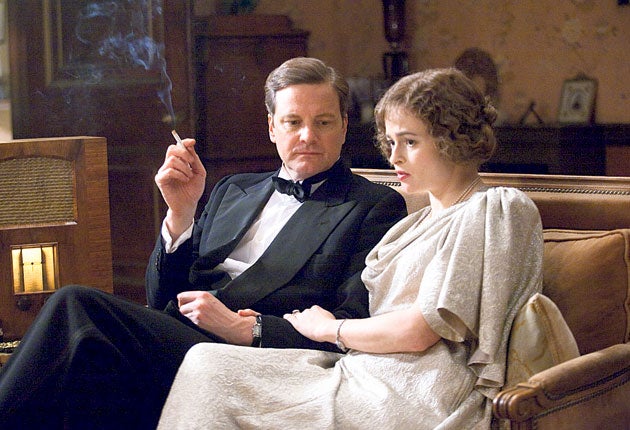Rebecca Front: Art can help us through the blues
Notebook

January. How my heart sinks at the thought of it. Not just Blue Monday, as its disheartening mid-month nadir is called, but every single miserable day of it.
Sometimes I wonder why I find it so perennially depressing, but then I remember that we've just had six weeks of present-choosing and house-decorating and feast-planning, hunkering down, cosying up, filling the house with fairy lights, log fires, games and anticipation. And January is its residue: the lights come down, the presents are a disappointment, you're broke, fat and invariably unwell. It's an over-full septic tank of a month, whose sole purpose seems to me to be bringing you back down to earth, reminding you of your responsibilities, punishing you for having fun, for daring to enjoy your life.
Any month where the only thing highlighted in your calendar is paying your tax bill is a month that's frankly given up trying to be liked. The snow's gone, the sky is a fetid grey stew, it's not even cold, for crying out loud, because cold might mean starlight and a magical glittering of frost on the trees, and we can't have that, can we?We can't have anybody's spirits rising. Why? Because January is a bastard. And yes, maybe that's my chest infection and the antibiotics and two types of inhaler talking, but that proves my point. Just look at the news at the moment:mudslides and floods, riots and recession.January ought to hang its head in shame.
With that in mind, I've been trawling the newspapers looking for something upbeat. And I found it, a little ray of hope... but with a caveat, rather than a sting, in its mixed-up metaphorical tail. Deep inside the refugee camps of Ramallah on the West Bank, a musical revolution is taking place. Ramzi Aburedwan, once a disaffected youth with no greater ambition than to hurl stones at Israeli soldiers, has founded a project to teach music to children in Gaza. The image of its small beneficiaries, huddled in their coats in an unheated room, diligently working their way through orchestral scores, pretty well moved me to tears.
It's not, of course, the first such initiative. The West-Eastern Divan organisation started by Daniel Barenboim and Edward Saïd has long promoted the importance of a cultural assembly between Palestinians and Israelis. And there are several other arts-based schemes to promote harmony, including one called Comedy for Peace, which aims to ease the violence and animosity by proving, through stand-up, that the similarities between the two groups are greater than the differences.
And here's the caveat. It is all too easy, in these days of draconian cutbacks, to think of arts funding at every level – amateur, professional and educational – as an easy target. After all, one can instantly see the benefit of funding, say, medical research. But it's harder to justify paying someone to do a painting degree or a doctorate in some obscure aspect of literature. The arts are all too often presented as elitist. Well that's not only wrong-headed but dangerous. The arts benefit all of us in some way, even if it's only that most people enjoy listening to music or watching soap operas.
Without music, visual art, theatre, cinema and all the rest, all our lives all the time would be as bleak as a January sky.
Those children, living a grim existence in Gaza, get that. So did Jews during the Holocaust. If people in extremis recognise that art, far from being a trivial luxury, is food for the soul, then we in our relative safety and prosperity must stop seeing the arts as the obvious first place for the axe to fall.
The magic of a satisfied cinema audience
My glass-half-full moment this week came when I went to see The King's Speech, for which the understated Colin Firth won his well-deserved Golden Globe award. Several things gladdened the heart, not least a witty screenplay and nuanced and compassionate performances.
But the unexpected pleasure came from seeing it in a packed cinema. My local one was sold out for every showing, so there was a buzz of anticipation before we even took our seats. And it's a rare delight to miss lines of dialogue, not because somebody is rustling sweet wrappers and talking, but because of loud, communal laughter.
As the film ended, I witnessed something I thought was long gone from the cinematic experience: a round of applause. It came, spontaneous and universal, from a group of people eager to show how hugely they'd enjoyed the film, irrespective of the fact that nobody involved in the making of it was present. There we were, in a nonsensical but heartfelt display of gratitude, clapping a blank screen. The magic of cinema hasn't disappeared. But sometimes it gets lost inside a supersized box of popcorn.
Alarm bells ringing in the retail sector
My glass-half-empty moment was at a shopping centre at noon on Saturday. Admittedly that would depress any sane person, not least one in the grip of January blues. But after my relief at finding a parking space and not having to queue anywhere, I quickly realised this did not feel right. In a country as reliant on the retail sector as ours, such a marked lack of consumer confidence is very worrying. I can't help thinking that the Coalition would do well to forget about Alarm Clock Britain and focus instead on Shopping Britain, before it's too late.
Join our commenting forum
Join thought-provoking conversations, follow other Independent readers and see their replies
Comments
Bookmark popover
Removed from bookmarks